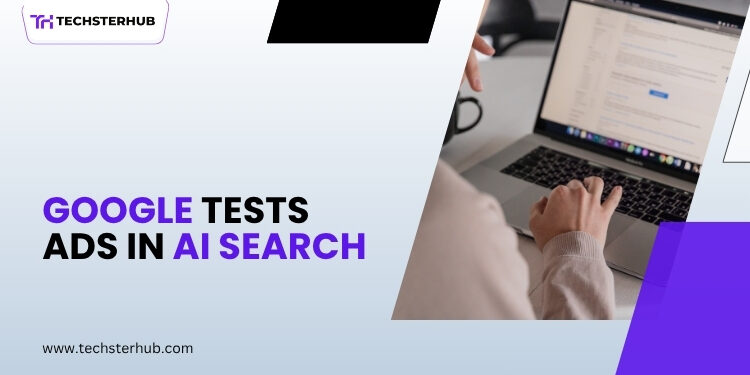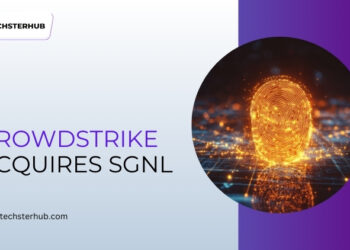Google LLC is making preparations to introduce advertisements to its new “AI Search Mode” search experience – marking a significant change in how search advertising will be served and consumed in the era of conversational, AI-driven searches. The experiments have started already, and their impact on advertisers, publishers and consumers is probably widespread.
What’s changing: Ads embrace Conversational Search
In a recent interview, Robby Stein, Vice President of Product for Google Search, confirmed that Google has “started some experiments on ads in AI Search Mode and in Google AI experiences.”
Specifically:
- Based on Google’s Gemini AI model, Google’s AI Search Mode provides a conversational search functionality in which users use multi-step questions instead of traditional keyword searches.
- In order to tap into this experience, advertising opportunities will expand further than the conventional SERP.
- Existing text, shopping and Performance Max campaigns can be served in this mode, but specific targeting for AI Search Mode is not yet opt-in.
In brief: the combination of ads with conversational AI search is emerging.
Why Google is Doing This
Google AdWords Will Change as Google Search Changes: Google’s transition to AI-powered search requires a corresponding transformation of its advertising business. Key drivers include:
- Cost of AI infrastructure: AI systems like Gemini are truly massive models demanding huge amount of underlying compute and data resources; revenue from advertising promotion helps offset costs.
- Changing user behavior: AI Search Mode queries are longer, more conversational, and more intent-dense – creating new moments of commercial value
- Preserving revenue model: Google’s search ads business is an important source of revenue; even as search evolves, monetisation must not.
Things That Advertisers Should Focus On
- Campaign structure, and proper voter eligibility
If you are already running Search, Shopping or Performance Max campaigns, it is possible that your ads are in AI Search Mode. However:
- AI Search Mode is not able to be selected as a placement directly
- Google has suggested changing to broad match or keyword-less targeting to allow ad systems to match conversational intent.
- Innovation and relevance on the landing page
The ads in AI Search Mode will be evaluated not only on the query but also the context of the AI response. Conversational copy: Your conversations are more than a keyword theme, and your ad copy and landing pages should reflect the broader conversation as opposed to oft-repeated keyword phrases. - Reporting limitations
At present, Google does not include separate reporting for ads that are displayed in AI Search Mode. It’s not possible to clearly determine which impressions were delivered in AI Search Mode or in standard search. - Query and intent shifts
With AI Search Mode, people ask longer and more complex questions. That means your targeting has to evolve – from keyword targeting down to what people need, want and do.
Additional impacts on the digital environment
For publishers and content creators
Conversational responses can give direct answers, which means that AIs may decrease the number of traditional link-clicks by users. This places pressure on publishers that are dependent on organic traffic.
For users
The use of ads in a conversational AI experience can set new expectations for search towards neutrality, speed and relevance. User trust will be based on how clearly ads are labelled and how intrusive users feel that ads are.
For Google’s business model
This is a strategic move, because as the search experience becomes increasingly AI-driven, Google’s survival of the search experience depends on keeping the revenue flowing, while satisfying users. That balance, therefore, will be important.
What Advertisers Should Do Next: Implications for the Future
- Ensure your feed hygiene is strong (for Shopping campaigns) and your creative assets are aligned with high-intent questions that users may ask in AI Search Mode.
- Enable broad match and Performance Max campaigns if not already; they increase your chances of being eligible for AI Search Mode placements.
- Audit landing pages: Make sure your pages answer deeper user questions for not just match keywords.
- Prepare to monitor changes: Because reporting is limited, track overall campaign performance and signals of change to prepare for wider rollout.
- Stay informed: As Google expands AI Search Mode ads internationally and adds reporting, early adopters may gain advantage.
Conclusion
The shift of search advertising towards Google’s organic listings gave a monumental change in the search advertising environment. For advertisers, it means being able to adapt to a more conversational, intent-based environment.
For consumers, it may alter the way they search and discover brands. And it poses new challenges for publishers with regard to traffic and monetisation.
We know that AI Search Mode ads are not just coming: If you currently pay for or plan your search ads for search engines like Google, it’s time to get your campaigns ready, think differently about targeting and increase relevance. They’re already arriving.











